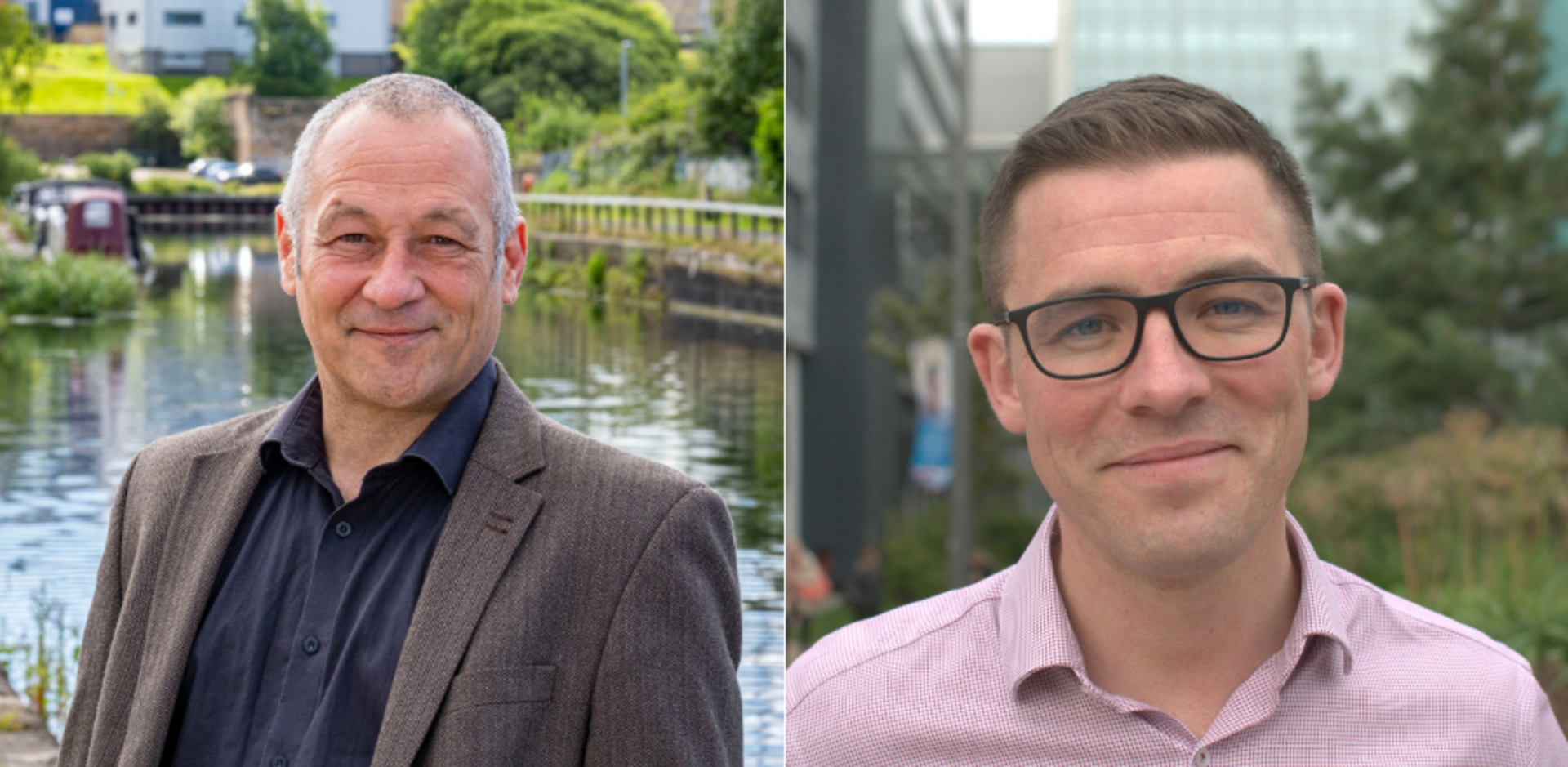GCU team star in COP26 Climate Data Challenge Hackathon

A team of scientists from Glasgow Caledonian University (GCU) will be taking part in a 48-hour COP26 Met Office Climate Data Challenge Hackathon next week (March 16-17).
Professor of Health Behaviour Dynamics Sebastien Chastin, from the School of Health and Life Sciences (SHLS), and Professor Gordon Morison, Head of Department for Computing in the School of Computing, Engineering and Built Environment (SCEBE), are leading the GCU team.
The 11-strong team will be made up of health and data experts who will use big data from award-winning research to find nature-based solutions that would both increase urban population health and resilience to climate change challenges.
The team hope the ideas developed during the virtual Hackathon will be showcased at COP26 in November 2021, which will attract Heads of State, policymakers, scientists and other stakeholders from almost every nation in the world.
Professor Chastin said: “We are really proud to have a multi-disciplinary team spanning health, public health, climate and data science that will allow us to see the whole picture. We would love to have our ideas showcased at COP26 but just taking part is a huge achievement and very important for the University.”
The Professors will be joined by Computing lecturer Dr Mark Jenkins and Electronic Engineers lecturer Dr Ryan Gibson, Post-Doctoral researchers Dr Zoë Tieges (SHLS) and Dr Imene Mitiche (SCEBE), and PhD students from both Schools Michail Georgiou, Ross David Crawford, Maria Insa Iglesias, Alireza Salimy and Mark Waters, for the online challenge.
Engineers and community engagement leaders from Scottish Canals will also lend a hand as the team’s project idea involves knowledge from the construction of Europe’s first ever Smart Canal scheme that uses 21st century technology to mitigate flood risk as well as enable mass regeneration in Glasgow.
They will combine that knowledge with data from Professor Chastin’s research into urban blue and green spaces, and vacant and derelict land, to come up with a nature-based solution that boosts health, flood defences and socio-economic equality.
Professor Morison, who leads the Data Science research group, said he was delighted to be joining forces with Professor Chastin’s SHLS Urban Blue and Green Health researchers as an opportunity to exploit artificial intelligence and data science methods on spatial-temporal data.
He added: “The aim of the Hackathon is to develop new ways to use data to deal with the challenges and exploit the opportunities of our changing climate. The event will run virtually, with both Teams communicating online and will hopefully allow us to showcase the synergies between the Green and Blue Wellbeing and the Data Science research group."
Professor Chastin said the Hackathon was a great platform for bringing both schools together and he had already ordered pizzas and energy drinks and provide exercise breaks to keep them going throughout the 48-hour challenge.
He explained more about their project idea: “We will be working with Scottish Canals because we are essentially going to try to use the knowledge acquired during the development of the Smart Canal for flood defences and see if we can replicate that on vacant and derelict land throughout other cities.
“We will explore data to see what vacant and derelict land can be turned into a nature-based solution that would have a positive impact on health, flood risk and inequality through the simulation of an extreme climate event to see how that would fair.”
Find out more about the Climate Data Challenge Hackathon here.
